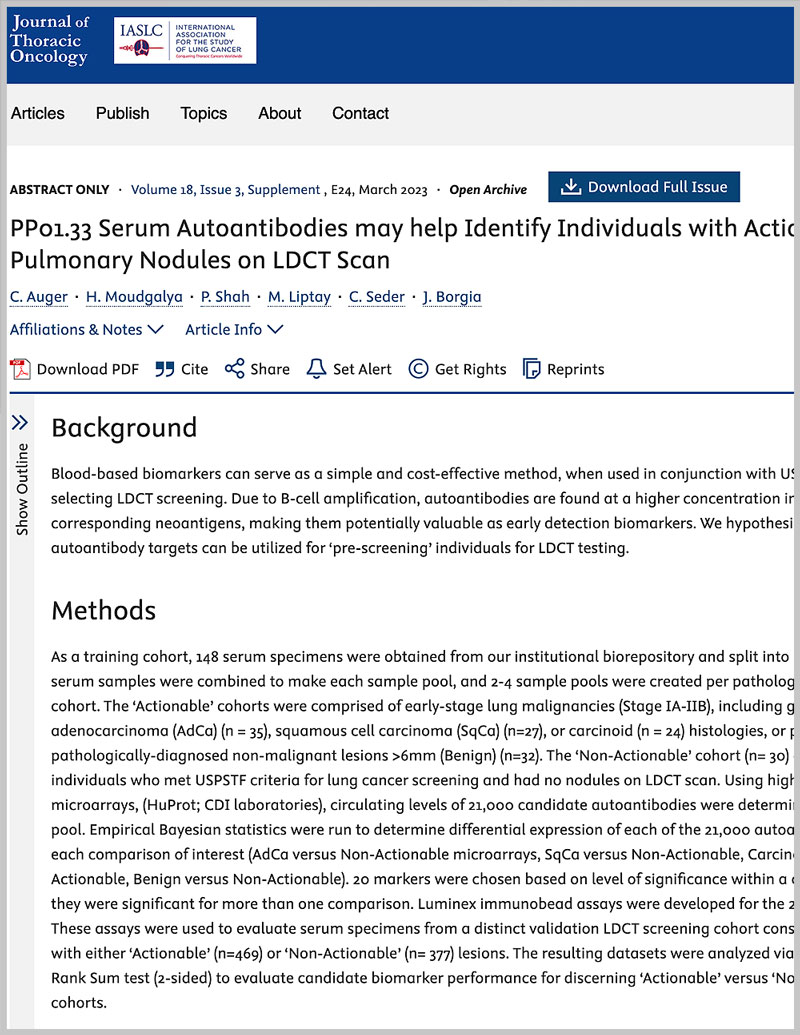- Follow Us
CDI Labs Services for
Biomarker Discovery
Our cutting-edge services enable specificity, accessibility, and potential for early detection of diseases.
REQUEST INFOHuProt for the Identification of Important Biomarkers
Providing highly valuable insights into human disease
Autoantibodies serve as valuable biomarkers for a wide range of diseases and conditions, including autoimmune disorders, infectious diseases, cancer, and neurological disorders. As biomarkers, autoantibodies offer several advantages, including their specificity, accessibility, and potential for early detection. The identification of autoantibody biomarkers or signatures can provide researchers with highly valuable information relevant to many aspects of human disease, including disease mechanisms, diagnostic information, disease classification, prediction of therapy response and likelihood of adverse treatment reactions.
In the featured publication below, HuProt™ microarrays were used to identify 501 candidate biomarkers differentially expressed in a training cohort (p>0.01). From these findings, 20 autoantibodies were selected for further analysis: CFAP36, DCD, DR1, GPBP1, HNRNPD, IKZF5, KEAP1, MED21, MIDIP1, MYBPH, NAP1L5, NAT9, NIP30, PJA2, PNMA1, RAB27A, SGPL1, TAF10, Ubiquillin 2, ZNF696. The publication concluded that novel circulating autoantibodies may have the potential to select patients with actionable lesions on lung cancer screening low-dose computed tomography scans.
Serum Autoantibodies may help Identify Individuals with Actionable Pulmonary Nodules on LDCT Scan
Background
Blood-based biomarkers can serve as a simple and cost-effective method, when used in conjunction with USPSTF guidelines, for selecting LDCT screening. Due to B-cell amplification, autoantibodies are found at a higher concentration in blood than their corresponding neoantigens, making them potentially valuable as early detection biomarkers. We hypothesize, circulating autoantibody targets can be utilized for ‘pre-screening’ individuals for LDCT testing.
VIEW PAPERCDI Labs Advantages
HuProt Sample Requirements
Human serum or plasma
One 20 μL per sample
Antibody isolates
10 μg per sample (concentration 0.1 mg/mL)
Human cerebrospinal fluid (CSF)
Minimum 1.5 mL per sample
Protein / peptide / small molecule
10 μg per sample (concentration 0.1 mg/mL)
RNA
1 mL per sample (concentration 2 μM)

